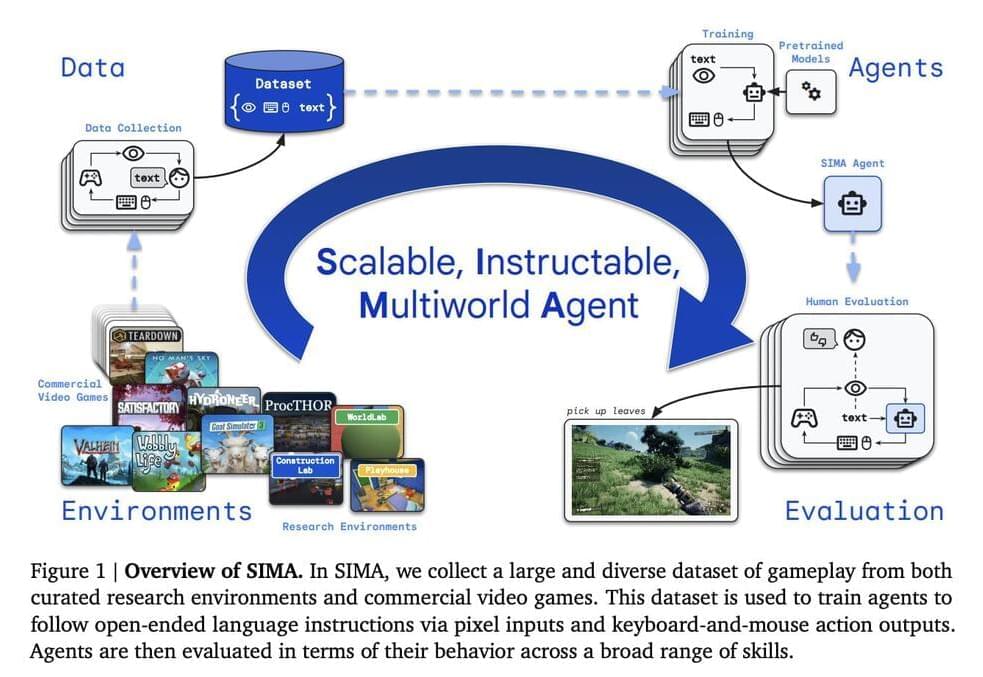😗😁😘 agi yay 😀 😍
The pursuit of artificial intelligence that can navigate and comprehend the intricacies of three-dimensional environments with the ease and adaptability of humans has long been a frontier in technology. At the heart of this exploration is the ambition to create AI agents that not only perceive their surroundings but also follow complex instructions articulated in the language of their human creators. Researchers are pushing the boundaries of what AI can achieve by bridging the gap between abstract verbal commands and concrete actions within digital worlds.
Researchers from Google DeepMind and the University of British Columbia focus on a groundbreaking AI framework, the Scalable, Instructable, Multiworld Agent (SIMA). This framework is not just another AI tool but a unique system designed to train AI agents in diverse simulated 3D environments, from meticulously designed research labs to the expansive realms of commercial video games. Its universal applicability sets SIMA apart, enabling it to understand and act upon instructions in any virtual setting, a feature that could revolutionize how everyone interacts with AI.
Creating a versatile AI that can interpret and act on instructions in natural language is no small feat. Earlier AI systems were trained in specific environments, which limits their usefulness in new situations. This is where SIMA steps in with its innovative approach. Training in various virtual settings allows SIMA to understand and execute multiple tasks, linking linguistic instructions with appropriate actions. This enhances its adaptability and deepens its understanding of language in the context of different 3D spaces, a significant step forward in AI development.
